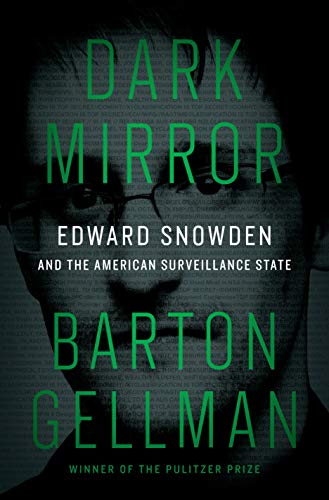Barton Gellman says he knew he would be a target
Barton Gellman, speaking at a National Press Club virtual Book Rap on Wednesday about his book Dark Mirror: Edward Snowden and the American Surveillance State, said, “I knew there would be a target on my back” when discussing the security steps he took to protect the classified documents he received from Edward Snowden. Foreign governments would like to get a hold of those documents, he said.
 Asked how he came to write about Edward Snowden, Gellman replied that a woman he had helped with security on her files contacted him about a person who said he had classified documents from the National Security Agency. She put Gellman in contact with the source. After several weeks of building trust, the source agreed to send Gellman a document. He said he was surprised when he received more than 50,000 documents, including Snowden's name, Social Security Number and CIA number.
Asked how he came to write about Edward Snowden, Gellman replied that a woman he had helped with security on her files contacted him about a person who said he had classified documents from the National Security Agency. She put Gellman in contact with the source. After several weeks of building trust, the source agreed to send Gellman a document. He said he was surprised when he received more than 50,000 documents, including Snowden's name, Social Security Number and CIA number.
Gellman explained that he knew there was material in the documents he would not publish.
He noticed a couple of files that had “Read Me” on them.
Gellman took the story to Time magazine, which Gellman was writing for at the time, but the business side of Time did not want to do a story with classified information. He then took the story to the Washington Post. The Post lawyer told the editor “I can’t advise you to do this.” The Post decided to do the story, he said, and the editor took the material from him.
One big story line was that the NSA was collecting all U.S. calls, including overseas calls, Gellman said, adding the agency can infer a lot from the patterns of calls.
The NSA also collected information from websites, Gellman said.
Gellman interviewed Snowden in Moscow and found him very security conscious. He asked Snowden what he missed most about America and Snowden answered “milkshakes”. Gellman said he told Snowden he should get a blender and make milkshakes. Snowden replied that he would not get a blender because using one could be tracked.
Gellman was asked if he saw Snowden as a whistleblower or a traitor. He replied that he did use those labels. Snowden is a zealot and they are rare. A zealot knows he right and when a zealot knows how use power they can “move the needle,” he said, continuing that the NSA saw Snowden as a betrayer.
Snowden was frustrated and thought people should know what was being done, Gellman said.
Asked how he got into journalism, Gellman replied that he failed at gymnastics so he joined the school newspaper and became editor. He applied for an internship at the Washington Post but did not get one for two years. A third try got him the internship and that led to his being hired by the Post.
Del Wilber, a member of the NPC board, interviewed Gellman.
